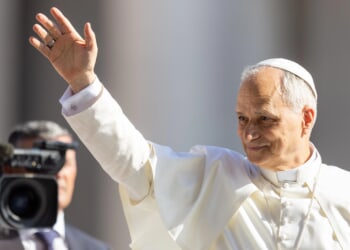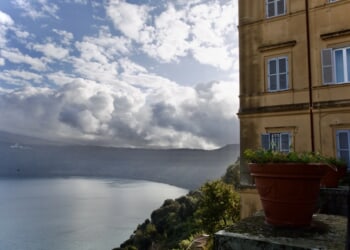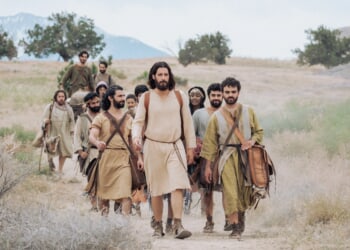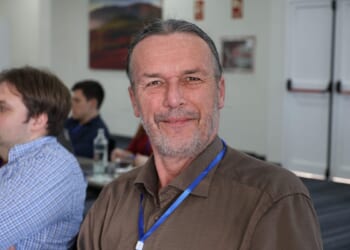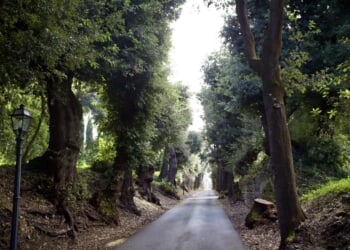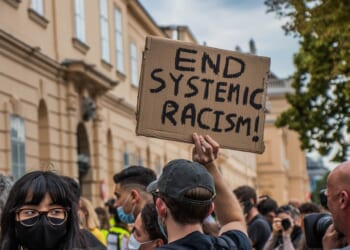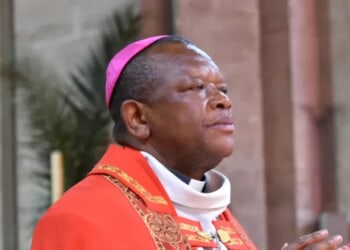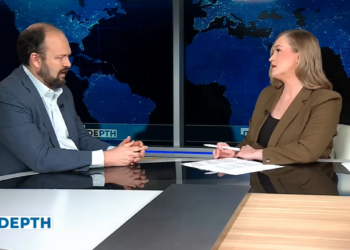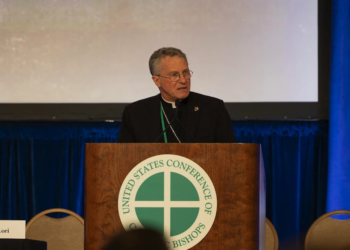Rome Newsroom, Jun 19, 2025 /
11:06 am
Cameron Mumford came to Jerusalem on a solo Catholic pilgrimage to retrace the steps of Christ. By the end of his journey, he had fled a modern war zone alongside a Romanian Orthodox nun, taking cover amid missile strike sirens at the Jordanian border crossing.
“I did not let go of my rosary or my brown scapular,” the 29-year-old British pilgrim told CNA of his harrowing final nights in Israel. “I kept praying for people to be safe.”
Mumford, a Catholic from the Diocese of Nottingham, England, had long dreamed of returning to the Holy Land. His first visit with a tour group in 2017 felt rushed, and this time, he wanted to spend more time in prayer at the holy sites. He arrived alone on June 6 and checked into a hostel just a five-minute walk from the Basilica of the Holy Sepulchre — the site where Jesus was crucified and rose from the dead.
At first, it was everything he hoped for. He joined the Franciscan friars for daily Mass and processions at the tomb of Christ, prayed at the Garden of Gethsemane for over an hour in near silence, and received a brown scapular made by Carmelites in Bethlehem. He even got a traditional pilgrim tattoo of the Jerusalem Cross etched on his arm.
“Praying inside the tomb of Jesus Christ is a surreal experience. I’m so blessed to be here right now,” he posted on social media on his first day.
But in the early morning hours of June 13, just hours before the planned end of his pilgrimage, Mumford was jolted awake at 3 a.m. by sirens and emergency alerts on his phone in Hebrew. Israel had launched a massive airstrike — Operation Rising Lion — targeting over 100 Iranian military and nuclear sites, and the country was bracing for retaliation from Iran.
Despite the chaotic night, Mumford still ventured out at daybreak for the long-awaited highlight of his pilgrimage: a Traditional Latin Mass offered by a visiting monk at the very site of Calvary within the Holy Sepulchre. It was his last moment of peace before his pilgrimage became a travel nightmare.
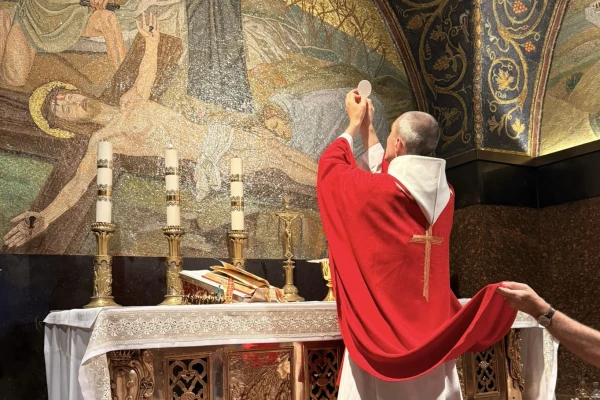
When Mumford returned to his hostel, he found out that Ben Gurion Airport had been evacuated. “I had friends and family calling me from home in hysterics because they’d seen the news,” he said. The British consulate offered little more than an email sign-up for alerts.
“Everybody was saying that we were expecting a really big attack any moment now,” he said. “I started to worry because I went on this pilgrimage to pray for healing from a health condition that I have, and I had only enough medication for a few days… I didn’t know if I was going to be stuck for weeks.”
Stranded and anxious, Mumford found himself sheltering in the lobby of the New Citadel Hostel in Jerusalem’s Old City with about 20 other travelers: Algerians, Germans, Russians, Brazilians, a Romanian, and a fellow Englishman who had cycled all the way from London.
That night, on June 13, Iran responded. Mumford was on the roof of his hostel around 9 p.m. with a few other guests looking out at the Jerusalem skyline “feeling tense” when suddenly everyone’s phones started buzzing: “Take cover, missiles incoming within minutes.”
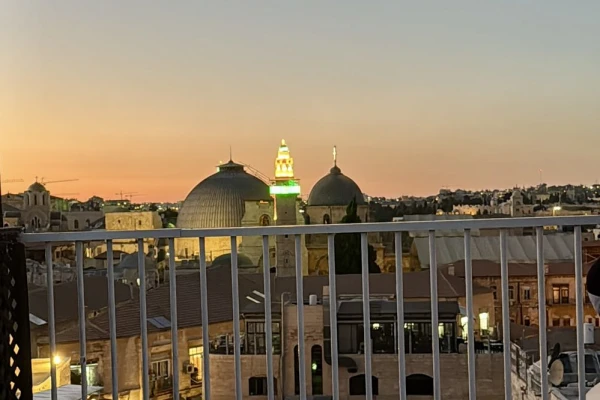
Iran unleashed a massive missile and drone barrage in retaliation for Israel’s surprise strikes. From the rooftop, Mumford witnessed the first wave of Iranian missiles being intercepted in the distant sky by Israel’s Iron Dome. “It was so crazy. It was like meteorites … they would turn the brightest white,” he said. “All the sirens were going off.”
Mumford and the other guests rushed down to the lobby of the hostel to take cover since they did not have access to an actual bomb shelter. “We could just hear explosions and the building rattling sometimes,” he said. “Everybody was very, very worried.”
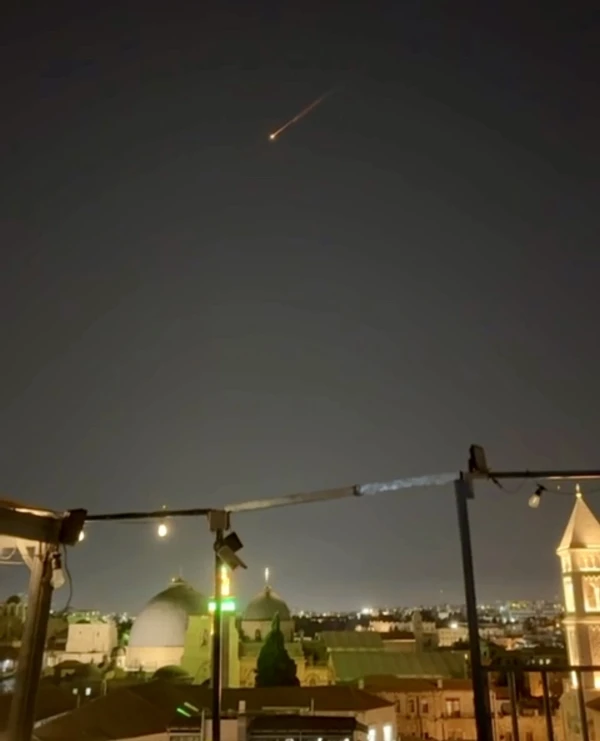
(Story continues below)
Subscribe to our daily newsletter
Sheltering in the lobby, Mumford sat next to a Romanian Orthodox nun named Mother Epifania, who calmly prayed the Psalms on her phone. He remained next to her, praying his rosary, making sure to make an Act of Contrition before letting himself fall asleep.
The next day, Mumford ventured out into the streets of Jerusalem in hope of finding his much-needed medication at a pharmacy. “Everything was closed. There were police and soldiers everywhere, and the streets were deserted,” he said, noting even the Holy Sepulchre and the mosques had closed their doors.
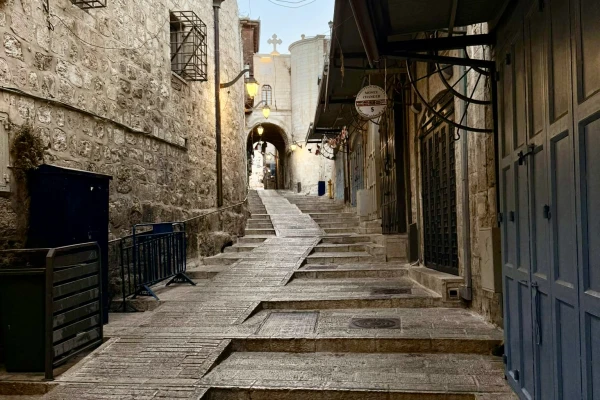
On Saturday night, sirens wailed again. But this time the missiles were a lot closer to Jerusalem than the previous night.
“The whole night all you could hear all night was just explosions from the missiles being intercepted or hitting around or near the city,” he said.
“The building was shaking like crazy and this night I had a kind of ‘memento mori’ moment because I thought I might not actually wake up tomorrow.”
As Saturday night gave way to Sunday, the guests discussed different escape routes, weighing their options: Egypt, Jordan, or wait it out. Many hesitated. But Mother Epifania knocked on Mumford’s door.
“She asked if I would leave with her because she had nobody to go with,” Mumford said. “So we quickly grabbed our things. We walked by the front door of the Holy Sepulchre, said some prayers, and then we went up to the Damascus Gates in the Muslim quarter and got a taxi all the way to the land border next to Jericho.”
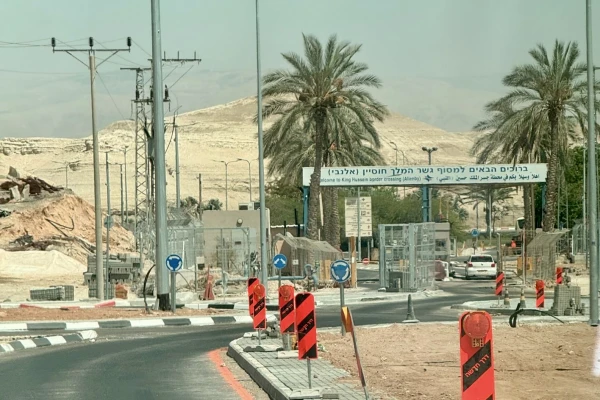
They arrived at the Jordanian land border crossing to find a sea of vehicles and a stalled line. Realizing the only way forward was to pay their way onto a bus near the front of the line, they shelled out $20 each to the bus driver. It felt a bit like bribery, Mumford admitted. But they made it — just barely.
“We were the very, very last vehicle to be let through before they closed [the border],” Mumford said.
“I think the whole situation was incredible — I was travelling with a nun, I had so many people praying for me, and we were the last vehicle to go through,” he said. “I thought that God is definitely helping us leave this place.”
But their ordeal wasn’t over.
As they waited to exit Israel, a loudspeaker announced an incoming attack was expected in 10 minutes. Sirens screamed. Soldiers ordered everyone to the ground.
Mumford ducked under a metal bench. “For the first time … I wasn’t praying for God to keep me safe,” he said. “I was praying for the forgiveness of all my sins I’ve committed in my life and asking God to look after my family.”
Nearby, Mother Epifania could hear Mumford breathing hard and kept quietly whispering to him: “Don’t worry, God is with us. He’s here with us right now. Keep praying. Keep praying.”
After the danger had passed, they waited another hour for visas and finally crossed into Jordan. They shared an hourlong taxi line to the Amman airport with some Romanians and Americans they had met in line, but when they arrived, many flights were canceled as neighboring airspace closed.
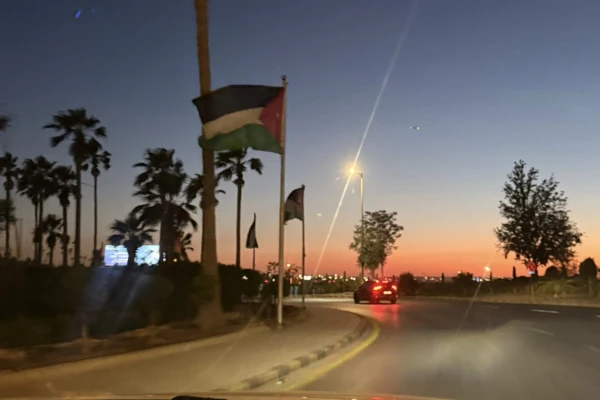
Mumford booked the cheapest flight to Europe he could find— a 470-pound ($631) flight to Düsseldorf, Germany, the following morning. Mother Epifania found a flight to Istanbul. The two parted with a handshake and a “God bless you.” When Mumford finally landed in England on June 17, he slept for over 13 hours.
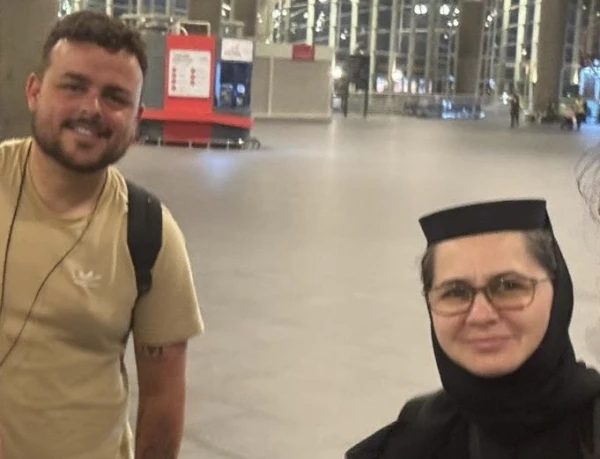
Now home and still processing the ordeal, Mumford worries for friends left behind at his hostel who are still trying to cross the border into Egypt or Jorden. “It’s getting very, very dangerous, even for Jerusalem,” he said.
Reflecting on all he had been through, he is astonished. “It just amazes me how I went to holy Mass on Calvary the very morning that it all kind of began, and I managed to get out as soon as possible,” he said. “And I had a nun reminding me to pray all the time when I was getting a bit stressed out.”




